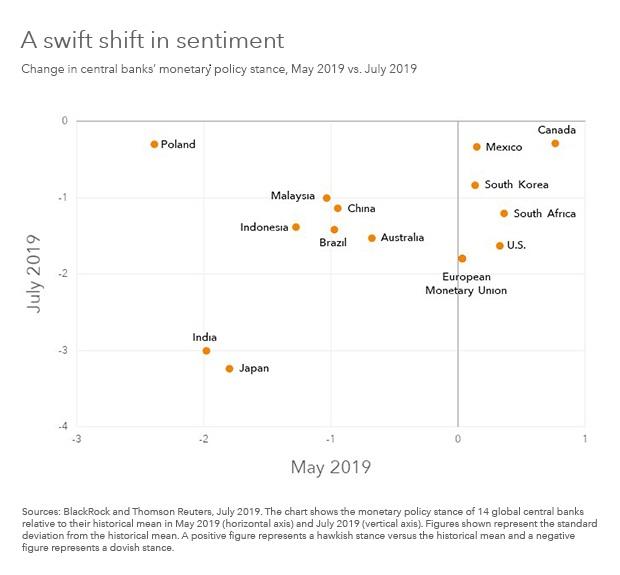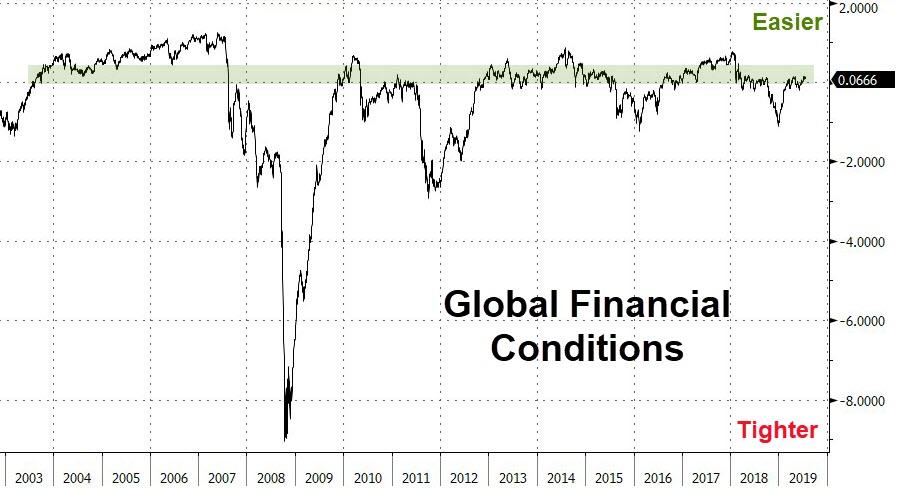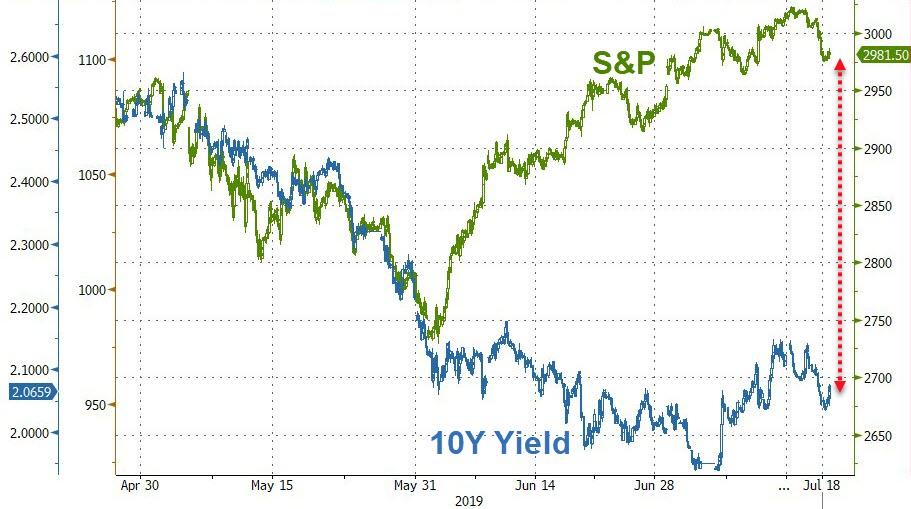China has almost incessantly eased monetary and fiscal policies this year (to no avail judging by the weakest economic growth in three decades). The Bank of Korea (somewhat surprisingly) cut rates overnight and South Africa‘s central bank just cut rates this morning. The Bank of Japan‘s Kuroda reassured investors overnight that they “will continue powerful easing persistently,” which follows Draghi’s reassurance that ‘whatever it takes’ is alive and well at the ECB (and uber dovish Lagarde is coming soon) and finally, despite improving macro data and record high stocks, The Fed is cornered into cutting rates no matter what.
As BlackRock recently wrote, if we connect the dots between the macroeconomic data and the “big data” read of analyst sentiment, we arrive at one key conclusion: Market expectations for central bank easing may be too lofty.
Does this level of “easy” financial conditions globally warrant almost universal easing?
One has to wonder, as former fund manager and FX trader Richard Breslow points out, their across-the-board overt dovishness, is simultaneously supporting markets and spooking traders – an uncomfortable mix that will potentially have implications for trading…
Via Bloomberg,
Unknown unknowns tend to have quite an impact when they spring themselves upon markets. But they aren’t something you can plan for other than having a well-balanced portfolio. Balance is a subject that is getting much more air time these days. The heightened interest in precious metals and the unwillingness of bond yields to extend any corrections are a sign that investors get the idea. Receding steadily are the days when pedal to the metal on risk was an aggressive, but arguably defensible, strategy.
Given the tone of the central banks, however, it somehow feels like there is a known unknown out there that clearly has them spooked. While whatever it is may be under-appreciated in the market, it isn’t lost on them. It sure isn’t fear of earnings season. Or a sudden realization that inflation, as they choose to measure it, has failed to rise to the level of their mandates.
Their across-the-board overt dovishness, is simultaneously supporting markets and spooking traders — an uncomfortable mix that will potentially have implications for trading.
It’s generally a really bad idea to try to fight city hall. Other than on a strictly tactical basis. “Whatever it takes” has proven to be an extraordinary tour de force of forward guidance. When markets deviate from official forecasts they have almost invariably taken this message to heart, not pushed back against it. Further emboldened by the just as effective, but far more dangerous, knowledge that calm in financial conditions isn’t anymore even an unspoken extra mandate.
Trading has been very quiet recently. Obviously, there is the summer effect. It’s also likely because, after what has been a tremendous start to the year for a lot of investors, they are weighing the efficacy of staying in-it-to-win-it or putting some of their gains in the bank in an environment where “uncertainties have increased.”
Paper versus booked profits is a real, not theoretical, consideration. Especially if portfolio managers become unnerved. And you get the sense they may be. Which, to be fair, is an issue that has periodically come and gone.
But this is a world where we must rightly debate how much fuel really is left in the monetary policy gas tanks. There is a distinct possibility, especially if the central banks go for what they think is a shock-and-awe approach that will keep the ball rolling indefinitely, that they are taken as the proverbial greater fools. Providing the liquidity for private investors to take the opportunity to lighten up rather than to buy more of the same.
That wouldn’t make for a placid August. But it will be a case study in liquidity, if not risk, management.
via ZeroHedge News https://ift.tt/2Gk6HsH Tyler Durden


